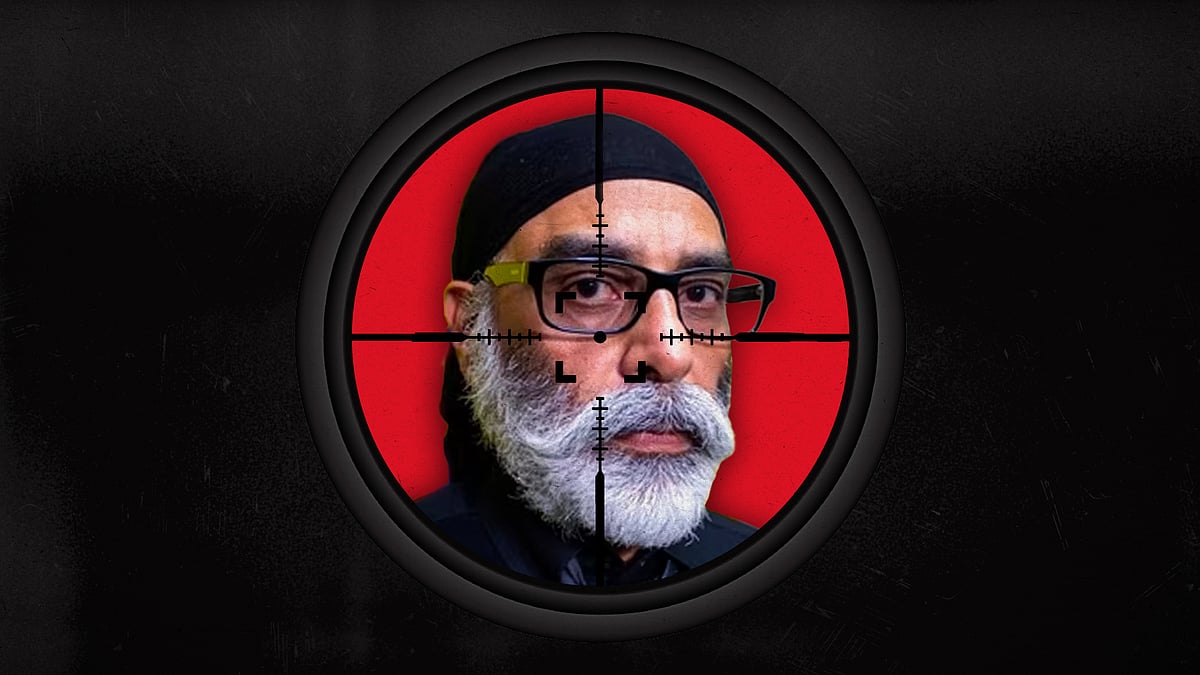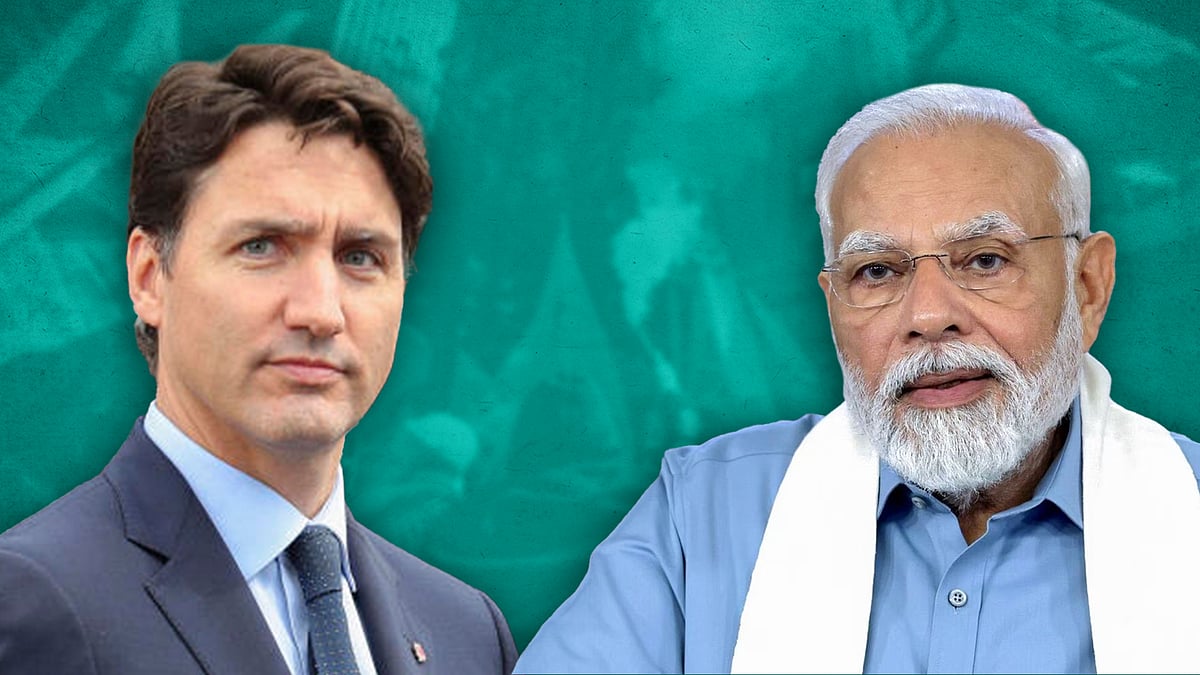Spy vs Spy: India’s year of diplomacy, from US to Canada to Qatar
The allegations of India’s transnational espionage capers wintered India-US relations, and overshadowed Modi’s G20 triumph.
2023 will go down as the year when the US-India relationship was hailed for scaling “unprecedented heights”.
It will also be known as the year that spies – India’s own – hacked Narendra Modi’s carefully wrought foreign policy script and rained on the prime minister’s parade. A desi Johnny English was thrown into the mix but, unlike the original, this might not end in a knighthood for him or his bosses.
So it was that a year which started with warm, fuzzy notes resonating from US President Joe Biden’s Twitter handle on December 20, 2022, describing India as a “strong partner to the US” and saying he looked forward to “supporting my friend PM Modi” during India’s presidency of the G20. It ended with Biden declining to be chief guest at India’s 2024 Republic Day parade, And External Affairs Minister S Jaishankar set off on a five-day visit, starting Christmas Day, to rediscover India’s friendship with Russia.
Biden’s turning down the January invite was a blow. In November, a US court indicted an Indian named Nikhil Gupta for a plot to kill Gurpatwant Singh Pannun, a Khalistani lawyer in New York. But we now know it was not a bolt from the blue for Delhi, as discussions had apparently taken place between top US and Indian security officials.
But the public outing of the Indian government’s alleged involvement in embarrassing detail via a court document signalled that the matter was serious and not one that could be “settled” in behind-the-scenes negotiations, as Delhi might have hoped.
Until then, it had only been Canada accusing India of a hand in killing Khalistani activist Hardeep Singh Nijjar on Canadian soil – and India swatted Justin Trudeau away like a fly. Television anchors lent a willing hand to rename Canada “Canadistan”. The galleries cheered as Jaishankar made scathing remarks about Canada’s “climate of violence”, even though a large number of Indians clearly disagree as they are plotting to get into that country through fair means or foul.
But the same allegation from Washington forced India on the backfoot to give assurances of cooperation in the matter.
Friend, neighbour or foe?
In Delhi, it was hoped that Biden would override the anti-Modi naysayers in the State Department and still show up for R-Day, but that was not to be. That also meant Modi’s dream of hosting the Quad summit on January 27 went up in smoke. Instead, French President Emmanual Macron gracefully accepted Delhi’s SOS to attend R-Day as a stand-in. Modi was the chief guest at the Bastille Day parade this year.
Macron will be the sixth French president to attend Delhi’s R-Day parade. The last was Nicholas Sarkozy who came in 2016. France makes great fighter planes and has always had a special interest in the parade, which has a large component of showing off India’ military hardware. Last year, it was a French flypast with the Rafales, and it will likely be a repeat this year too with the French chief guest watching.
Moreover, France still considers itself in the race for India’s planned Advanced Medium Combat Aircraft programme, for which the US’s General Electric is the strongest contender if the deal for the F14 engine comes through. It was signed during Modi’s state visit to Washington in June this year – the same one during which the Indian PM was told he could not wriggle out of a press conference. He faced an unscripted question from a Wall Street Journal reporter about Muslims, minorities and free speech in India.
The deal on the GE engine was described as bigger than the India-US civil nuclear deal for the strategic partnership. But like the nuclear deal of 2005, it needs the US Congress to sign off on it. Will that happen? How deeply has l’affaire Pannun hurt the US-India relationship?
Importantly, Biden is not the favourite to win the 2024 US presidential election. Assuming he won’t be president for more than a year, and those who stormed the Capitol in 2021 may get front seats for the 2025 inauguration, what will a second Trump presidency mean for India? Moreover, if the US-China frost thaws, even if slowly, it will certainly weaken one leg of US-India ties, even if it doesn’t knock it out completely.
Perhaps these questions were weighing on Jaishankar’s mind when he zipped off to Moscow this week.
As to India’s own relations with China, the buffer zones on the LAC have become the new normal on the contested boundary. These buffer zones, the outcome of several rounds of disengagement talks, basically comprise land that was on the Indian side prior to the Chinese ingress in May 2020. They are now inaccessible to India.
China believes the problem has been sorted and wants India to move on to normalising all other aspects of the bilateral relationship. India has held firm that the problem remains and needs resolution through bilateral border agreements. The positions seem irreconcilable, and the Chinese threat will continue to nag India in 2024, especially as de-escalation has not taken place.
China’s influence in South Asia will also remain a concern for Delhi. The Bhutan-China border talks and a new president in the Maldives present new challenges. Other than India, 2024 is an election year for four south Asian countries – Bhutan, Bangladesh, Pakistan and Sri Lanka – with the outcomes unlikely to hold any surprises. But irrespective of political continuity or change, Delhi’s work of dealing with each is cut out.
Meanwhile a new global challenge is taking shape in the form of a spillover of Israel’s war on Palestine in Gaza to the Red Sea, critically important for international shipping and global supply chains. Houthi rebels in Yemen are attacking ship, apparently targeting those flying flags of countries that are seen as pro-Israel. The US is leading a 10-nation naval force to tackle Houthi missile and drone attacks on vessels transiting through the Bab Al-Mandeb at the southern end of the Red Sea, and beyond.
Two Indian carriers were also hit. The Indian navy, which already had two stealth-guided missile destroyers in the Arabian Sea close to the Gulf of Aden, has beefed up its presence in those waters with another warship. It may be a matter of time before India is asked to join the US initiative, though to do so would be to alienate Iran, which backs the Houthis.
India’s stand on the Israel-Gaza war has been complicated. It’s trying to correct an openly pro-Israel stand by PM Modi but missed an opportunity in the UN by not voting with the Arab world and the Global South, which it claims to lead, on a resolution for a ceasefire in Gaza. The war, and the danger of its expansion, pose a greater challenge to Indian diplomacy than Russia’s war on Ukraine.
Back to Russia
The final days of 2023 brought another dismal reminder of how espionage and spies dominated India’s diplomacy in 2022. On December 28, an appellate court in Qatar commuted a trial court’s death sentence to eight ex-Indian navy men, reducing it to life imprisonment for one, and varying prison terms for the others. It dashed the hopes of their families that India might be able to secure a pardon from the Emir for the men. The saga will continue with another appeal and continuing hope in the Emir’s reported goodwill for Modi.
The navy veterans, who were working for a Doha-based company that did training, logistics and maintenance work for the Qatar navy, were convicted of spying. They were arrested in August 2022 and kept in solitary confinement for several months. The trial court’s verdict, pronounced at the end of October, has been kept under wraps by both Qatar and India.
What are both countries hiding? Perhaps 2024 will produce some answers.
The G20 summit was supposed to be the highlight of the year. But its success in producing a unanimous Delhi Declaration seems to have faded quickly, yielding centre stage to the allegations about India’s trans-national spy capers, allegations that large sections of Indians want to believe are true.
Moscow to the rescue. In all the geopolitical flux, along with the ups and downs in the India-US relationship, it was the Moscow-St Petersburg visit that appeared to re-ground India's foreign policy with some old fashioned “rebalancing” – a term that Jaishankar used during the visit. At work clearly are Biden’s cold-shoulder, Trump’s possible return to the White House, and India’s China challenge.
The minister showed off on social media a 1962 Soviet-era pass to a Red Square reception for cosmonauts that he’d attended as a child – a hard-to-miss allusion to the long history of India-Russia ties including, of course, the space collaboration. To make sure that the message went home, Jaishankar also waxed eloquent about this friendship, describing Russia as a “valued, time-tested partner”.
The Russians no doubt felt vindicated. The annual India-Russia strategic dialogue has not taken place for two straight years. Russian President Vladimir Putin threw the ball in Modi’s court, inviting him to visit next year.
Jaishankar gave an assurance that India values the dialogue. “To me...if there is one constant in world politics,” he said in Moscow, “it has actually been the relationship between India and Russia.”
Full circle. But a week is a long time in geopolitics, and next year is next year.
 ‘Plot to kill Pannun’: Why did Nikhil Gupta want to ‘finish the job’ before June 30?
‘Plot to kill Pannun’: Why did Nikhil Gupta want to ‘finish the job’ before June 30? Canadian intelligence has been probing R&AW long before Nijjar case, suggests review
Canadian intelligence has been probing R&AW long before Nijjar case, suggests review